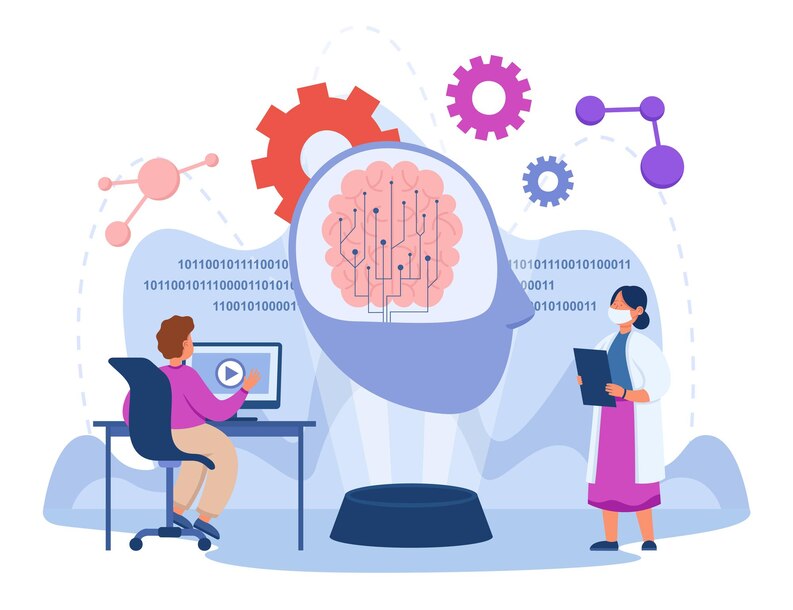In the ever-evolving landscape of modern industries, artificial intelligence (AI) has emerged as a transformative force, reshaping the way businesses operate and thrive. From healthcare to finance and manufacturing to retail, AI is leaving an indelible mark on various sectors.

- Enhanced Efficiency and Productivity: AI-driven automation streamlines processes, reducing the need for human intervention in repetitive tasks. This leads to increased efficiency and productivity. In manufacturing, robots equipped with AI can work tirelessly, ensuring precision and speed. In customer service, chatbots and virtual assistants handle routine inquiries, freeing up human agents for more complex issues.
- Data-Driven Decision-Making: AI processes vast amounts of data in real-time, providing valuable insights for informed decision-making. In finance, AI algorithms analyze market trends to make predictive investments. In healthcare, AI aids in diagnosing diseases by examining medical images and patient data. Such data-driven decisions improve accuracy and outcomes.
- Personalization and Customer Experience: AI algorithms analyze consumer behavior to offer personalized experiences. In e-commerce, AI recommends products based on user preferences. Streaming services suggest content tailored to individual tastes. This not only enhances customer satisfaction but also increases sales and user engagement.
- Healthcare Advancements: AI revolutionizes healthcare with early disease detection, drug discovery, and patient care. AI-powered diagnostic tools detect anomalies in medical images with high accuracy. AI-driven drug discovery accelerates research, potentially leading to breakthrough treatments.
- Supply Chain Optimization: AI optimizes supply chain management by predicting demand, managing inventory, and optimizing routes for shipping. This reduces costs, minimizes waste, and ensures products reach consumers efficiently.
- Enhanced Security: AI plays a pivotal role in cybersecurity. Machine learning algorithms identify patterns of cyber threats and anomalies in network behavior, helping organizations protect their data and systems.
- Environmental Impact: AI aids sustainability efforts by optimizing energy usage, managing resources, and predicting environmental changes. In agriculture, AI-driven precision farming minimizes resource wastage and maximizes crop yield.
- Job Transformation: While AI automates certain tasks, it also creates new job opportunities. AI specialists, data scientists, and AI trainers are in high demand. Moreover, AI augments human capabilities, making employees more productive in their roles.
- Ethical Considerations: The proliferation of AI raises ethical concerns such as bias in algorithms, data privacy, and job displacement. It’s crucial for businesses and policymakers to address these issues responsibly.
In conclusion, AI is a disruptive force reshaping modern industries. Its ability to enhance efficiency, provide data-driven insights, and improve customer experiences makes it a valuable asset for businesses. However, its impact extends beyond the corporate realm, influencing healthcare, sustainability, and society at large. As AI continues to evolve, its responsible and ethical implementation will be essential to harnessing its full potential for the betterment of industries and humanity.
To know more visit:- What are the Steps to Start a Career in Artificial Intelligence?